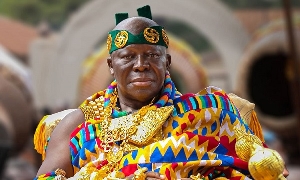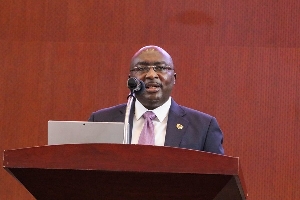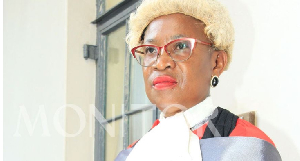Soccer News of Monday, 10 March 2008
Source: GNA
Ghanaian coaches deserve better deals
By Richard Avornyotse - GNA Sports Desk
Accra, March 10, GNA - The career of a footballer is short. Most of them retire from the game in their early thirties and the few who hang on longer terminate their playing times before they attain 40. Some unfortunate ones go on premature retirement due to injury; an inseparable hazard of the game.
It is this phenomenon and the loss of form, from time to time of some players that affect the performances of clubs and national teams the world over. And as is always the case, coaches of both clubs and national teams are tasked to find replacements for the tired limbs and restore the shine in the teams.
Succinctly put, coaches are the bedrock upon which footballers develop. They help players acquire rudimentary techniques as infants and assist them to nurture their potentials to appreciable grades. They are the people who determine the direction of the game in the clubs and national teams and are therefore an indispensable set in the development of the game.
It is this arduous responsibility that makes coaching lucrative and attractive since coaches live the game of football, which undoubtedly is the most supported sport in the world, attracting an unbelievable quantum of investment funds. No doubt, the coach of the Black Stars, for example earns far more than our President and his ministers in terms of remuneration.
Football is the passion of the nation; a passion that brings all shades of Ghanaians together and binds them in unity when the national teams play.
Despite the fat cheques coaches pick, they face a lot of uncertainties as they are fired often for "poor performance," thus throwing them back into the job market to scout for other opportunities.
However, in the international market, most of these coaches are guaranteed a source of livelihood even when they get the boot. Their jobs are most often tied to contracts which determine how much they earn weekly, monthly or annually and they attract other attendant benefits such as bonuses and other allowances as the case may be.
Depending on the type of contracts they sign, some are paid compensations when they are dismissed without seeing through their contracts. Do you remember the case of Bukhard Ziesse versus the Ghana Football Association where FIFA ruled in favour of the German and the Ghana FA was compelled to pay him compensation?
While there is job security for most coaches outside the country, Ghanaian coaches belong to another world when it comes to safeguarding their jobs and earnings through contracts.
Most of them are given letters of appointment, which only indicate their monthly salaries without any reference to what happens along the line when there is a head on collision or dispute that results in the termination of appointment.
Even national coaches, who have Ghanaian blood running in their sinews, are treated with the same disdain that is the predicament of club coaches. What a shame!
The disparity in the hiring of a foreign coach who signs a contract and gets paid regularly and his Ghanaian counterpart who is "promised honourarium" which accumulates well over two years is to say the least, a pie of injustice, gross discrimination and subjugation. When Dan Owusu spilled the beans about unpaid "honourarium" of the technical team of the Black Queens before their sack, I developed goose pimples and wondered how those who hired them expected them to excel under such conditions. No wonder, the Black Queens conceded 13 goals in three matches at the last Women World Cup in China, scoring only three. It is the same pathetic story you hear from coaches whose services are dispensed with often by the various clubs. Their "sign on fees" and salaries are always in arrears and when they are sacked, most of them are never paid.
A chat with our coaches about the indebtedness of clubs to them will make you shudder and gasp for breath.
Ghanaian coaches have been reduced to slaves who work without pay, recognition and adulation but are at the receiving end when results are negative, while those hired from outside the country are respected, adequately paid and protected by officialdom even when they fail to meet set goals.
These are the two worlds of coaches in Ghana!
Another issue that bogs my mind is the lack of high brow refresher courses for our coaches. Most of them trained many years ago and will indeed need to brush up their knowledge to acquaint themselves with modern trends of coaching.
Unfortunately, due to poor conditions of service, they are unable to sponsor themselves to Europe or South America where perfect training facilities and conditions exist.
Thus apart from a few who were able to update their knowledge, most of them are static and will rely only on the shine of individual players to achieve results and not on astute technical planning and execution.
Since the national teams make use of players from the clubs without paying anything to them, it will be prudent on the part of the Ghana Football Association (GFA) - custodians of the national mandate to supervise the development of the game - to explore new avenues to ensure that some of coaches are retrained to implement the developmental agenda.
It is a good sign that after Silas Tetteh had been apprenticed to many foreign coaches including the revered Claude Le Roy, he has now been elevated to put his cumulative knowledge on display as head coach of the Satellites, the national Under 21 team.
We only hope that he will be given a contract that will motivate him to deliver his best. The contract must also, "in the interest of continuity," guarantee him an uninterrupted stay with the team even if he fails to meet set goals in his first attempt Let us also hope that Mumuni Gamel and his assistant will not keep quiet over the absence of a working contract or unpaid salaries, or will it be "honourarium," until they are fired. Our local coaches are the building blocks of our football development and the earlier we begin to treat them more seriously the better it will be for Mother Ghana.
Just as I was about to sign off, a colleague who had shown tremendous interest in this piece referred me to the BBC Sport website where FIFA President Sepp Blatter had publicly kicked against the hiring of foreign coaches by national Associations. Blatter lamented that only four of the coaches at Ghana 2008 were indigenous coaches, while majority who were foreigners had departed the various countries they led to the championship. "National team coaches should come from the same country as the players," he said and demanded that foreign coaches be banned from national teams.
"Of course, national associations are free to choose who they believe is the right man but I do think that the cause of international football would be made stronger with indigenous coaches," he said. "I will bring it to the Technical Committee on Monday. If we had such a rule maybe it would impact on the freedom of the associations. But we can take up this matte," The FIFA President concluded. Based on the postulation of FIFA President, let us start empowering our indigenous coaches to take up the mantle sooner than later. 10 March 2008











